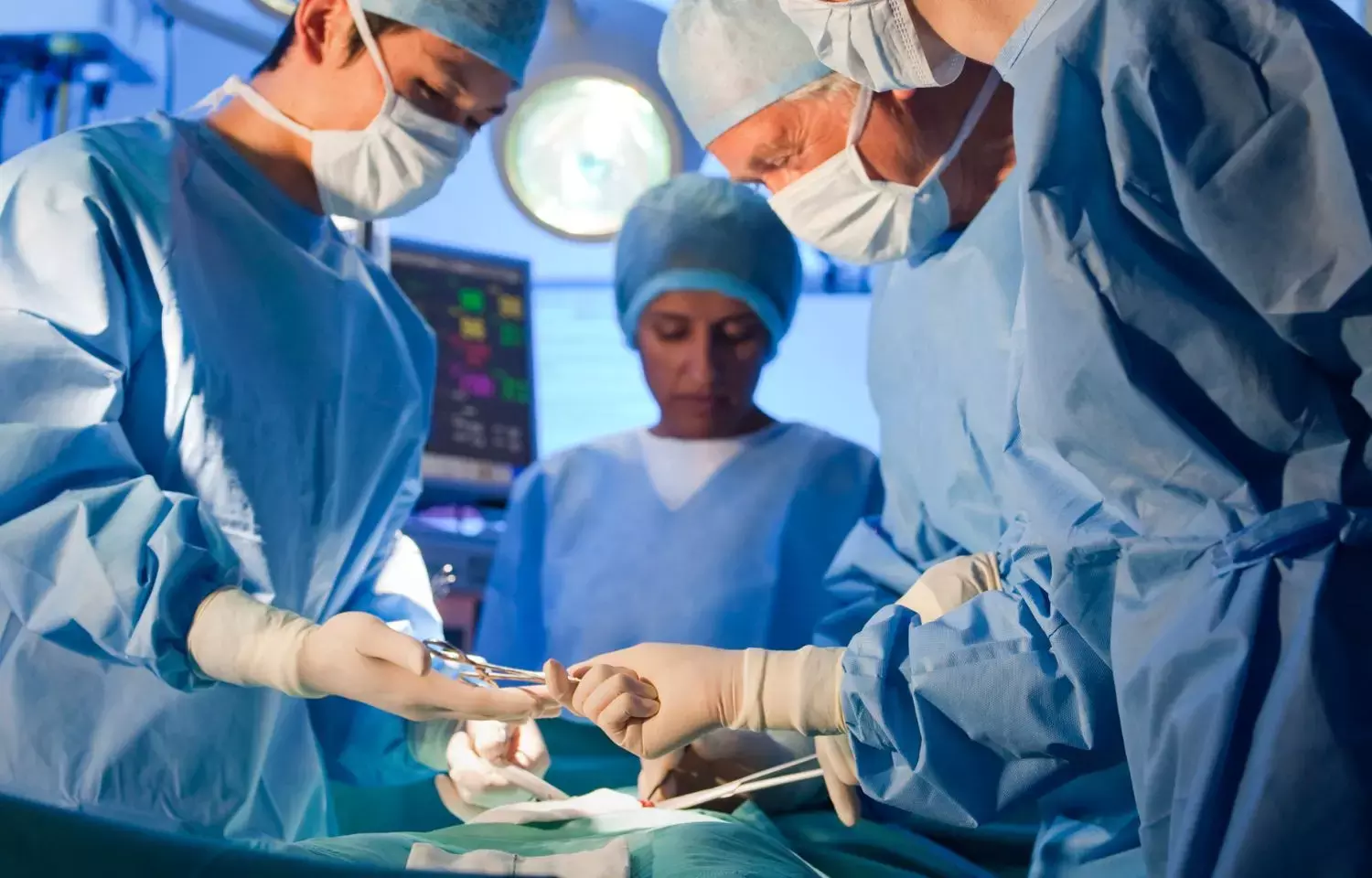- Home
- Medical news & Guidelines
- Anesthesiology
- Cardiology and CTVS
- Critical Care
- Dentistry
- Dermatology
- Diabetes and Endocrinology
- ENT
- Gastroenterology
- Medicine
- Nephrology
- Neurology
- Obstretics-Gynaecology
- Oncology
- Ophthalmology
- Orthopaedics
- Pediatrics-Neonatology
- Psychiatry
- Pulmonology
- Radiology
- Surgery
- Urology
- Laboratory Medicine
- Diet
- Nursing
- Paramedical
- Physiotherapy
- Health news
- Fact Check
- Bone Health Fact Check
- Brain Health Fact Check
- Cancer Related Fact Check
- Child Care Fact Check
- Dental and oral health fact check
- Diabetes and metabolic health fact check
- Diet and Nutrition Fact Check
- Eye and ENT Care Fact Check
- Fitness fact check
- Gut health fact check
- Heart health fact check
- Kidney health fact check
- Medical education fact check
- Men's health fact check
- Respiratory fact check
- Skin and hair care fact check
- Vaccine and Immunization fact check
- Women's health fact check
- AYUSH
- State News
- Andaman and Nicobar Islands
- Andhra Pradesh
- Arunachal Pradesh
- Assam
- Bihar
- Chandigarh
- Chattisgarh
- Dadra and Nagar Haveli
- Daman and Diu
- Delhi
- Goa
- Gujarat
- Haryana
- Himachal Pradesh
- Jammu & Kashmir
- Jharkhand
- Karnataka
- Kerala
- Ladakh
- Lakshadweep
- Madhya Pradesh
- Maharashtra
- Manipur
- Meghalaya
- Mizoram
- Nagaland
- Odisha
- Puducherry
- Punjab
- Rajasthan
- Sikkim
- Tamil Nadu
- Telangana
- Tripura
- Uttar Pradesh
- Uttrakhand
- West Bengal
- Medical Education
- Industry
Among diabetics, Carbohydrate loading < 300 mL 2 h before anesthesia doesn't increase aspiration risk

In patients with type 2 diabetes (T2D), preoperative carbohydrate loading < 300 mL 2 h before anesthesia indication did not affect the gastric volume (GV) or increase reflux and aspiration risk, says a study in the World Journal of Clinical Cases.
The study further found that with preoperative carbohydrate loading of < 200 mL, blood glucose levels did not change significantly. 300 mL carbohydrate loading, however, may further increase blood glucose levels in type 2 diabetes patients before induction of anesthesia.
Consuming carbohydrates two hours before anesthesia is beneficial to the patient's recovery and is a key aspect of enhanced recovery after surgery. Diabetes patients are prone to delayed gastric emptying. Different guidelines for the consumption of carbohydrate in diabetes patients remains controversial owing to concerns about the risk of aspiration, regurgitation, and hyperglycemia. Blood glucose monitoring and ultrasonic gastric volume can comprehensively evaluate the safety and feasibility of preoperative carbohydrate intake in T2D patients.
Against the above background, Xin-Qiang Lin, Department of Anesthesiology, Affiliated Hospital of Putian College, Fujian Province, China, and colleagues aimed to investigate the impact of preoperative carbohydrate loading on GV before anesthesia induction in T2D patients.
The study included 78 T2D patients receiving surgery under general anesthesia from December 2019 to December 2020. They were randomly allocated to four groups receiving 0, 100, 200, or 300 mL of carbohydrate loading 2 h before induction of anesthesia. Before anesthesia, the following parameters were evaluated-Perlas grade, gastric volume per unit weight (GV/W) changes in blood glucose level, and risk of reflux and aspiration.
Based on the study, the researchers found the following:
- No significant difference was found in GV/W among the groups before anesthesia induction.
- The number of patients with Perlas grade II and GV/W > 1.5 mL/kg did not differ among the groups.
- Blood glucose level increased by > 2 mmol/L in patients receiving 300 mL carbohydrate drink, which was significantly higher than that in groups 1 and 2.
"Our study showed the safety and recommended volume of preoperative carbohydrate loading in T2D patients," the authors wrote.
To sum up, it is safe for T2D patients to drink 200 mL of 14.2% carbohydrate 2 h before surgery. "In the future, we will study whether preoperative consumption of 200 mL of 14.2% carbohydrate can reduce postoperative insulin resistance and promote recovery of patients," they conclude.
Reference:
Lin XQ, Chen YR, Chen X, Cai YP, Lin JX, Xu DM, Zheng XC. Impact of preoperative carbohydrate loading on gastric volume in patients with type 2 diabetes. World J Clin Cases 2022; 10(18): 6082-6090 [PMID: 35949825 DOI: 10.12998/wjcc.v10.i18.6082]
Dr Kamal Kant Kohli-MBBS, DTCD- a chest specialist with more than 30 years of practice and a flair for writing clinical articles, Dr Kamal Kant Kohli joined Medical Dialogues as a Chief Editor of Medical News. Besides writing articles, as an editor, he proofreads and verifies all the medical content published on Medical Dialogues including those coming from journals, studies,medical conferences,guidelines etc. Email: drkohli@medicaldialogues.in. Contact no. 011-43720751


